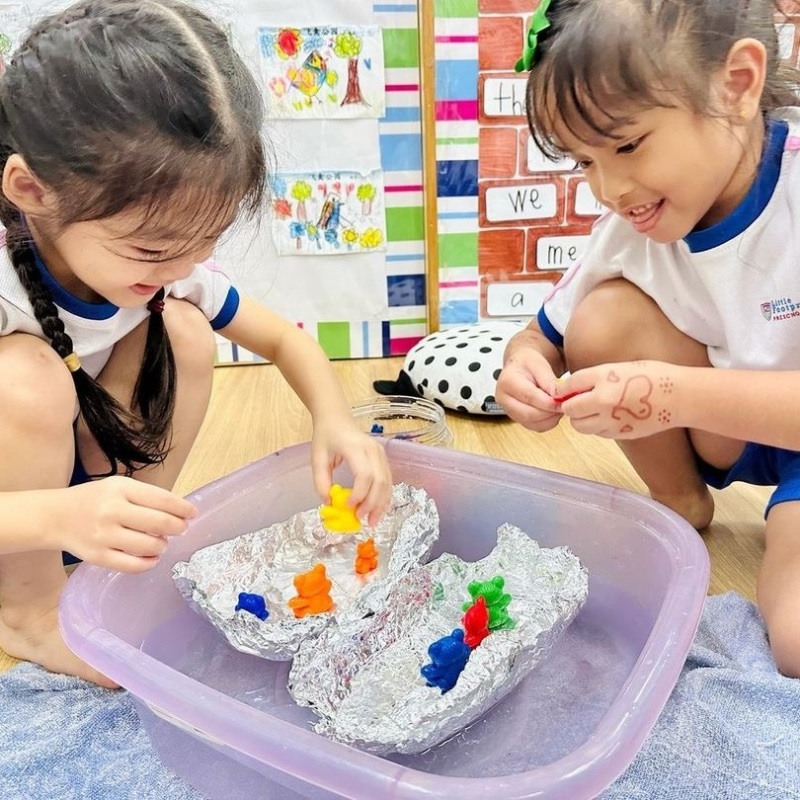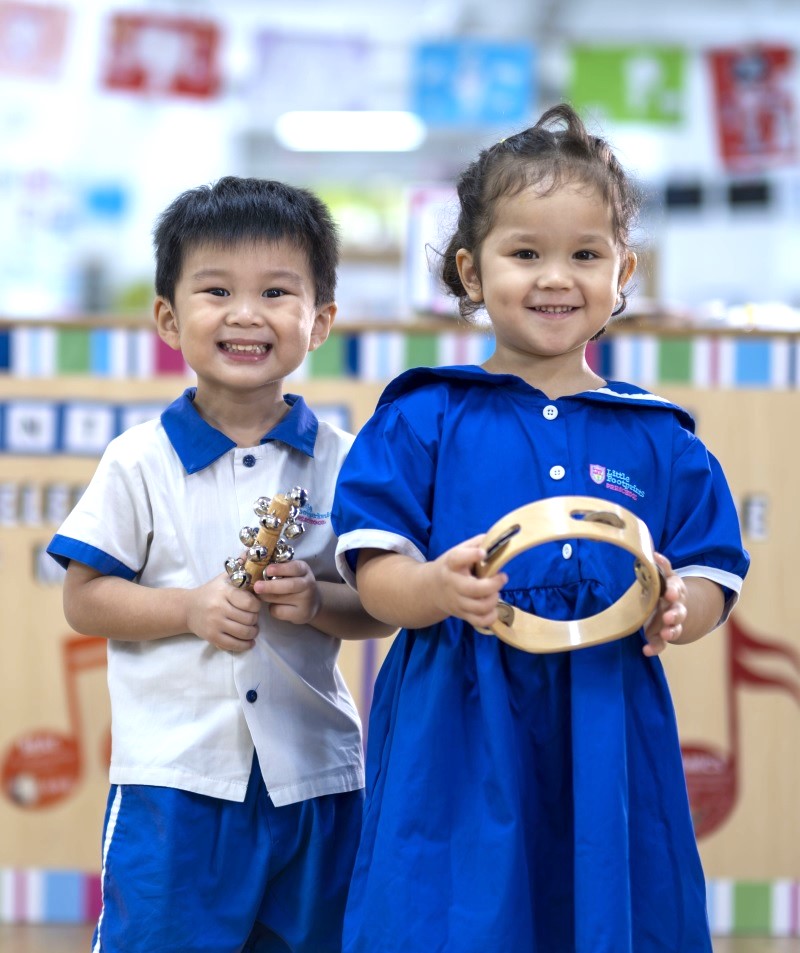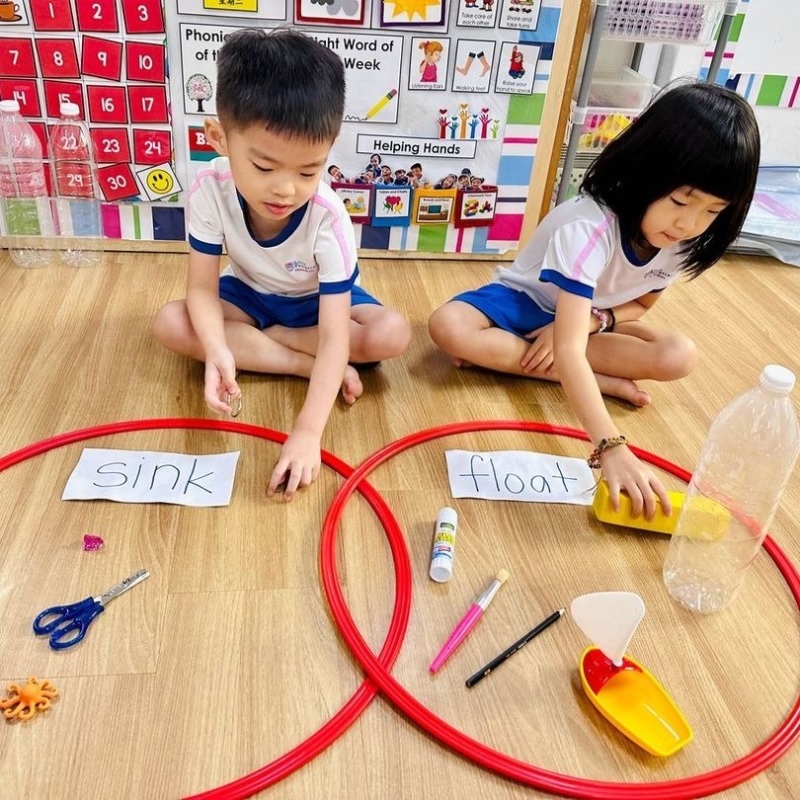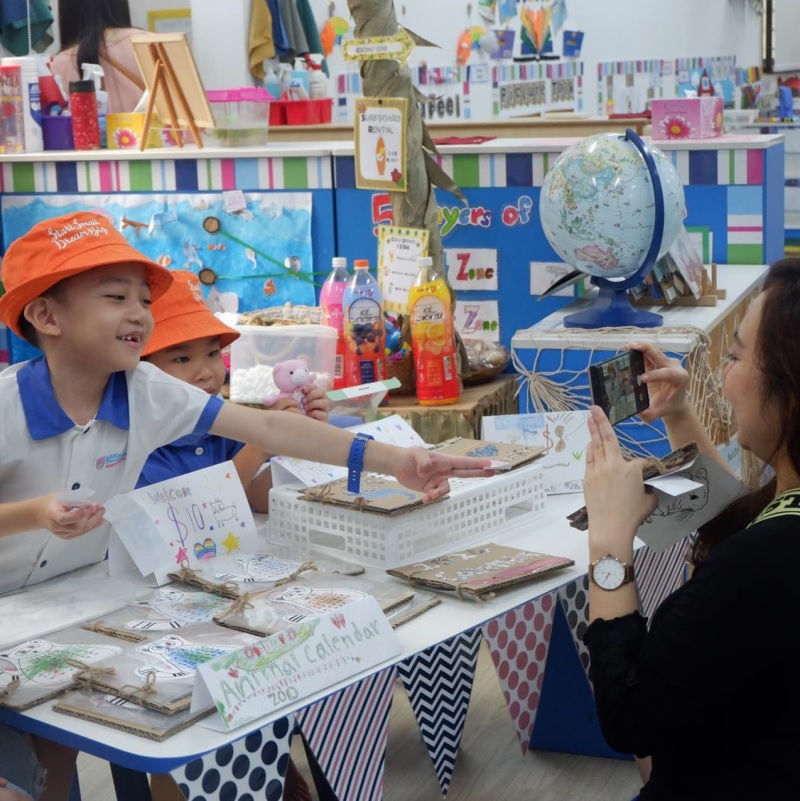
Why is it important for preschoolers to be exposed to early numeracy from their preschool years? Is this why Singapore students are known for being the best in Math globally?
Firstly, numeracy skills refers to the ability to understand, recognise and use math concepts in our daily lives.
Benefits of developing a strong foundation in numeracy skills
Everyone needs numeracy and math skills in their everyday lives.
Looking at your watch to tell the time? Comparing discounts and savings when buying groceries? Surprisingly, these are all math concepts that we often don’t realise!
Thus, when young children from playgroup level build a strong foundation in numeracy skills, benefits are aplenty. They are learning to problem solve, discover patterns and trends, develop critical thinking skills, analyse situations and options to make decisions.
Fun ideas to boost children’s knowledge and application of math concepts
Wish to reinforce what your children have learnt in childcare? There are several ways to explore math concepts through talking, playing, reading and during different times of your day. Here are some engaging activities parents can do with their little ones:
1. Count together
Learning to count is likely to be one of the most obvious numeracy skills parents relate math to. There are many opportunities to count with your preschooler. At home, let your child decide how many blueberries he/she wants, and count together while letting him/her place them in the bowl. When packing the wardrobe, invite your child to count how many diapers/shorts/t-shirts he/she has.

2. Sing-along number songs
Music and movement are known to be beneficial to children’s learning. Time to sing and dance while boosting interest in number sense! It’s not just singing the alphabet song, which is great for supporting literacy development. Popular children’s number and counting songs like One, Two, Buckle My Shoe, The Ants Go Marching and Five Little Monkeys Jumping on a Bed are great options to get your active one moving and learning math.
3. “What is the time now, Mr Wolf?”
Young children may need some effort to understand how to read the clock and tell the time. For a start, connect the concept of time with activities when you converse. Tell your child, “Look, it’s 8pm. Time for bed!” Or, “We’ve to reach grandma’s house at 1pm, so let’s leave the house at 12.30pm.” Besides knowing what we do relates to the time of the day, it gives them an understanding of time management, which is a life skill too.
4. Eye spy with my little eye….
Going on a car ride can turn into a play time too! Play Eye Spy with your little one when on the road – it keeps them entertained while keeping their eyes focused on details. Ask them, “Count how many red cars are there?”, or “Point to the man wearing a yellow shirt.”
If you’re heading to someone’s home for the first time, get your child to look out for the block number. In the lift, invite her to press the lift level that you’re heading to. Learning through play is an excellent way to teach children from playgroup age and beyond.

5. Observe and compare
Comparative words like taller/shorter, heavier/lighter, bigger/smaller may seem more related to literacy. That’s the beauty of words because such vocabulary improves your child’s ability to express while being observant about the world around him. At the supermarket, have him/her pick out the biggest watermelon or longest radish. At home, they can also use such math concepts when differentiating between their socks and another sibling’s.
6. Sort it out!
The skill to sort relates to how data can be handled as well as the use of graphs, which is a topic primary one children will be exposed to. With the various toys like building blocks or cars, guide her on sorting them into groups. This can be done based on various characteristics such as size, colour or shape.
7. Keep reading
The benefit of reading goes beyond developing language and literacy – through books, children can pick up ideas and concepts too. What are some books that touch on counting and numbers? Look out for The Very Hungry Caterpillar by Eric Carle and The Crayons' Book of Numbers by Drew Daywalt are popular favourites.
Childcare curriculum in Singapore: Developing early maths skills from young
Early numeracy is a key component of Little Footprints Preschool’s core programme. The curriculum comprises developmentally appropriate resources and interactive activities for early learners. Through our educators’ support, children make meaning of their learning and develop the foundation for more complex mathematical concepts as they prepare for primary one maths.
What are some of our engaging methods used?

Children at our childcare centres unleashed their entrepreneurship skills to help raise funds! Being able to work with money and change counts, giving them the confidence that they can make an impact on our community using their early math skills too!
Learning about numeracy goes beyond writing digits. At Little Footprints Preschool, kindergarten children embark on experiential learning to sharpen their math concepts as a team. By tackling questions together, they learn to problem-solve through the experience.
Find out how Little Footprints Preschool’s comprehensive curriculum supports children’s foundation in early numeracy. Book a centre tour to learn more.
Follow us on social media to stay updated on our latest updates and happenings:




